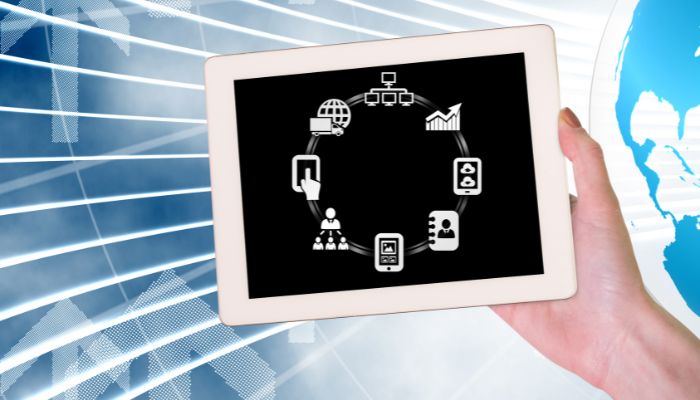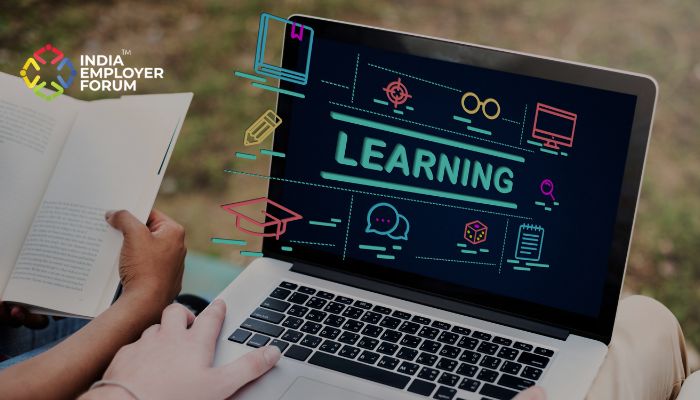To many people, bitcoin is synonymous with blockchain. While it is famous for creating a foundation for cryptocurrencies, the technology itself has far wider applications. Blockchain technology is a tool with the potential to drive massive economic development. This is why India, through blockchain technology-friendly policies, is actively encouraging companies and industries to incorporate the technology into their operations.
In a document released by the Chartered Accountants of Canada, “A blockchain is a digital ledger created to capture transactions conducted among various parties in a network. It is a peer-to-peer, Internet-based distributed ledger that includes all transactions since its creation. All participants (i.e., individuals or businesses) using the shared database are “nodes” connected to the blockchain, each maintaining an identical copy of the ledger“.
Blockchain provides a platform where information of any sort and wealth is secure. It also offers a new way to record and share data of all kinds. These two major advantages of blockchain are what makes it usable and adaptable to any sector of the economy.
You might also be interested to read: India Requires Skill Sets To Meet The Rising Number Of Blockchain Technology Jobs
An introduction to blockchain has increased the demand for jobs in blockchain technology in India. Through the approval of multiple patents, India has encouraged the growth of blockchain companies. Consequently, more blockchain developers are trained on the various uses of blockchain technology and how to start a career in blockchain.
Blockchain technology and accounting
In as much as blockchain has been integrated and absorbed by almost every industry, blockchain is essentially an accounting technology. While there is an introduction of blockchain in HR, blockchain technology is majorly designed for the transfer and securing of assets and maintaining a ledger of accurate financial information.
Since blockchain records and stores wealth, enables transactions and provides methods of recording cash flows and reconciling accounts, it is a technology based on accounting. It is no surprise blockchain is revolutionizing the accounting profession in India and all over the world.
Blockchain technology ensures that all accounting-based data is kept in an immutable and transparent system. This has led to a reduction in the cases of human errors and fraudulent practices that plagues the traditional accounting system. It also allows accountants and CPAs to streamline their processes and audits while ensuring that the records are authentic and reliable. Because of this, large corporations have massively invested in blockchain.
A point that is noteworthy to mention is that accounting and blockchain technology share one core similarity; their relevance to asset ownership and scrupulous storage of financial information. To this end, blockchain technology has infused the accounting procedure with a lot more efficiency due to its provision of clarity over asset ownership and obligatory responsibilities.
Furthermore, traditional accounting practices, for a long time, have always relied on paper-trails, and most recently, cloud-based storage to keep up with records and regulatory compliance. Blockchain technology eliminated costs incurred on the maintenance and reconciliation of ledgers while providing a better efficient system of keeping records. With blockchain, organizations can have absolute certainty of their assets and commitment.
Also, the advancement of machine learning, alongside blockchain technology, will bring about a total redefinition of the accounting profession. These innovations will lead to an increase in transactional-level accounting. An accountant’s duties will metamorphose from record-keeping into providing economic analysis and forecasting of future events based on blockchain records.
Finally, blockchain provides the opportunity for accountants to focus on accounting practices that are deemed too difficult. Since blockchain has eliminated the basic duties of accountants, it gives accountants the time needed to create ideas that can increase the scope of accounting.
You might also be interested to read: Technology Trends in HR : Challenges and Rationale (Use of Blockchain to Solve HR Challenges)
References:
- Blockchain and its potential impact on the audit profession. Deloitte,
- Blockchain Is Not A Threat To Accounting, It’s An Opportunity. Forbes, Published by Andrew Arnold – August 28,2018.
- Double-Spending Explained. Mycryoptopedia, Published by Bisade Asolo- December 21, 2018.
- How Does Blockchain Work? Investopedia, Published by Nathan reiff- February 8,2020.
- Blockchain Technology and Its Potential Impact on the Audit and Assurance Profession by the Chartered Professional Accountants of Canada
- Blockchain: Industry Applications and Legal Perspectives by NishithDesai Associates Legal and Tax Counselling Worldwide
Related Topics:






